Drowned in Sound
Hosted by Sean Adams, founder of Drowned in Sound, this weekly podcast explores how culture, politics, and the climate crisis are reshaping music. From AI and activism to festival futures and the collapse of local scenes, we treat music as an ecosystem, not just entertainment. Guests include artists, changemakers, and organisers reimagining what music can be. Subscribe and join the conversation.
Episodes
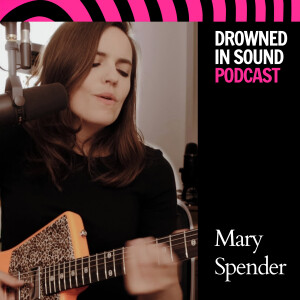
2 days ago
2 days ago
While most music industry coverage focuses on (poly)crisis and collapse, Mary Spender argues we're living through the greatest era for independent artists in history.But, but but... what about streaming economics, venue closures, and platform dependence? Don't worry, we get into it.With over 100 million YouTube views, 34,000 newsletter subscribers, and significant album sales achieved before releasing a single track to streaming, Mary demonstrates there are viable alternatives to industry doom-spiralling. In this conversation, she reveals her strategies for converting YouTube viewers into album buyers, why artists need to think like entrepreneurs, and what she'd build with Spotify's $400 million Joe Rogan budget.Sean also asks her about her recent video about why artists should embrace YouTube. Speaking of which, you will be able to see clips from this interview over on Drowned in Sound's YouTube: youtube.com/@DrownedinSound Timestamps00:00 Sean's Intro03:21 What will music be like in 2050?06:25 Why artists should think like entrepreneurs12:45 What does the future hold for independent artists?16:56 The 1000 true fan theory18:51 Should YouTube be the #1 platform for musicians?24:36 Researching with an open mind. A rare skillset?29:45 How to convert an audience from YouTube34:17 What can the UK government do for music?36:35 How would Mary spend the $400 million Spotify paid Joe Rogan?38:39 Is long-form content on the return?43:29 Sean's OutroQuotable Moments"Technically it's never been a better time to be a musician than today, even though everyone likes to talk about the heyday. But that was for a very lucky few." "If you don't have the grassroots, you don't have the artists in Wembley Stadium. Like you don't have that trajectory." Continue the Conversation📧 Email sean@drownedinsound.org with your questions for future episodes🌐 Join the Drowned in Sound Community📰 Subscribe to the Drowned in Sound newsletterGuest LinksMary Spender's YouTube ChannelMary's website and newsletterThe Dire Straits Documentary on NebulaReferenced in EpisodeKevin Kelly's "1000 True Fans" essayAbout the Host: Sean Adams is the founder of Drowned in Sound (est. 2000), manages artists including Charlotte Church and The Anchoress, and has worked with BBC 6 Music. Through this podcast, he maps the future of music by exploring culture, politics, and the systems shaping how we create and consume music. At its peak, Drowned in Sound had over 3 million readers. Stay tuned for details about its 25th anniversary celebrations.
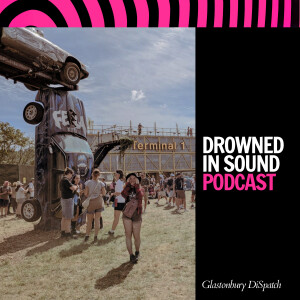
Saturday Jul 05, 2025
Saturday Jul 05, 2025
What does it feel like to attend Glastonbury for the first time?Music journalist Emma Wilkes brings us along for her debut pilgrimage to the UK's landmark musical gathering. She spins us a sonic diary with interviews from Terminal 1 and Laima Layton, along with reactions to some of the politically charged moments of the festival (shouts to Amyl and the Sniffers). Along the way, there are vox pops with strangers, overlooked corners, and moments that slipped under the mainstream radar…00:00 Introduction01:51 Pre-festival preparation with Emma Wilkes03:26 Attendees' expectations of Glastonbury 202504:22 First impressions and Thursday observations06:19 Terminal 1 and an interview with Laima Layton18:32 The sounds of Worthy Farm19:12 How does the real-life festival compare to the coverage seen previously?21:45 The political moments of Glastonbury 202530:42 The journey home, the Tuesday after, and a summary from a slightly raspy Emma34:11 Expectations vs. reality with the people of the festivalMentioned in the episode:Laima LaytonIn Place Of WarGRRRLTerminal 1Amyl and the SniffersJADESeun KutiMarujaLambrini GirlsJoin the conversation: Drowned in Sound CommunityEmail: sean@drownedinsound.orgStay updated: Subscribe to DiS newsletter
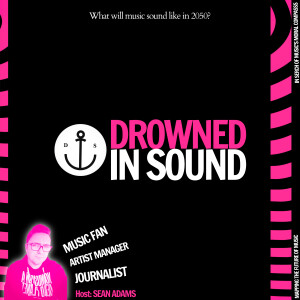
Sunday Jun 29, 2025
Sunday Jun 29, 2025
How do you build genuine community when algorithms reward viral moments over real connection? What if sustainable music careers start with just five super fans rather than chasing millions of followers?Drowned in Sound founder & artist manager Sean Adams speaks with Nikki Camilleri - music strategist, Forbes 30 Under 30 honoree, and founder of mana - about the ground-level realities of building a music career in 2025. From growing up in Malta and navigating geographic disadvantage to working with breakthrough artists like Cat Burns, Nikki breaks down what actually works in today's oversaturated landscape.This conversation digs deep into authentic community-building versus audience accumulation, the "five super fans" principle that challenges conventional wisdom, and why most artist advice around social media is fundamentally broken. Plus: Nikki's vision for fixing music industry infrastructure by 2050, including transparency tools and direct fan connection platforms that don't rely on algorithmic gatekeepers."You need five super fans to start getting going - that's equal to about 250 passive fans. When you start looking at it that way, it doesn't seem as daunting."— Nikki Camilleri on why quality beats quantity in fan buildingEpisode Timestamps:00:00 Introduction: Music Reality Check for 202502:03 Envisioning Music in 2050: Transparency and Infrastructure04:34 The Malta Factor: Geographic Disadvantage in Digital Times08:26 The Resilience Crisis: From "Ready to Fight" to Viral Expectations16:28 Five Super Fans vs Viral Algorithms: Quality Over Quantity20:14 Real Community vs Audience: Building Genuine Connection32:15 Artist Purpose and Identity: The "Horror Electronica" Story39:21 Fixing the Industry: Where Would You Spend Spotify's Money?44:48 Key Takeaways: What Actually WorksMentioned in the episode:Nikki CamilleriROSTRRoyal Society of ArtsVolt.fmKat AbuThe AnchoressKevin Kelly on 1000 True FansJoin the conversation: Drowned in Sound CommunityEmail podcasts@drownedinsound.org Subscribe to DiS newsletter
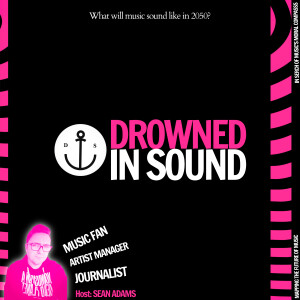
Sunday Jun 22, 2025
Sunday Jun 22, 2025
What does it mean to “metabolize” emotion through music? Do wellness tools actually work better when paired with your favourite artist? Why does the music industry treat artists like products and not caregivers?Drowned in Sound founder Sean Adams is joined by Ariana Alexander-Sefre, co-founder of the mental health app SPOKE, to talk about the future of therapy and how music can play a pivotal role in that. The conversation explores the science behind sound, the emotional toll on musicians, and why music should be taken seriously as a public health tool.Spoke has worked with over 100 artists, training them in techniques like CBT and mindfulness to embed into lyrics and melodies - and the results are changing lives.Episode chapters:0:00 - 2:45 - Introduction2:46 - 4:55 What would Ariana hope music to be like in 2050?4:56 - 7:46 Using music to “metabolize” emotions7:47 - 11:50 Who are SPOKE and who is Ariana Alexandre-Sefre11:51 - 13:42 The relationship between music and mental health13:43 - 20:28 Inside the SPOKE app - embedding music with culture with therapy20:29 - 31:18 Why the music industry needs a fresh perspective on artist value31:19 - 37:08 The science behind functional music and mindfulness38:09 - 40:04 The real-world impact of therapy delivered through music40:05 - 48:08 Can artists become a recognised part of healthcare?48:09 - 54:13 - Closing thoughts from SeanMentioned in the episode:Music Minds MatterCan Music Make You Sick? (Sally Anne Gross)Mood Machine: The Rise of Spotify and the Cost of the Perfect Playlist (Liz Pelly)EndelJoin the conversation: Drowned in Sound CommunityEmail: sean@drownedinsound.orgSubscribe to DiS newsletter
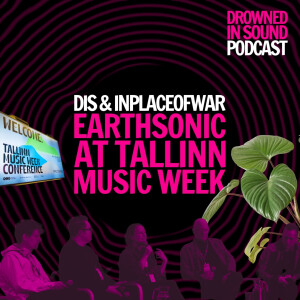
Saturday Apr 12, 2025
Saturday Apr 12, 2025
What does a melting glacier sound like? Can a rainforest sing? And what happens when the last bird of its species hears a recording and tries to reply?In this special live edition of the Drowned in Sound Podcast, recorded at Tallinn Music Week, host Sean Adams moderates a powerful conversation on music, ecology, and collective action. Joined by artists and innovators from the EarthSonic project, the panel explores how field recordings, plant biofeedback, and immersive sound can shift our understanding of the planet — and why that emotional shift matters.From Brazil’s disappearing biodiversity to sound fossils in the Swiss Alps, this episode weaves together music, activism, and indigenous wisdom in an urgent yet hopeful conversation about art’s role in averting climate collapse.Plus Ruth from In Place of War reveals their new project with Bicep in Greenland that launches in summer 2025.Featured Guests & Projects:Natural Symphony (Joey Dean)Ludwig BergerIn Place of War / EarthSonic (Ruth Daniel)Martyn Ware (Heaven 17 / Human League)Episode Highlights & Timestamps:03:00 – Ruth Daniel on the origins of In Place of War and EarthSonic06:00 – Ludwig Berger: Listening to melting glaciers through hydrophones11:00 – Martyn Ware (Heaven 17/The Human League) on sonifying endangered species and synthetic forests17:00 – Natural Symphony: Collaborating with plants and reforesting the Amazon27:00 – The power of sound to bridge disconnection and inspire action33:00 – Building cultural change through art and emotional resonance39:00 – Sound healing, deep listening, and making the unseen audible45:00 – What capitalism doesn’t want us to feel — and why art matters52:00 – Indigenous wisdom, urban detachment, and finding your own tree58:00 – Hopeful projects, collective agency, and calling in the music industryMentioned in the Episode:"The Last Scream" new releaseCrying Glacier movieEarthSonic panel replay via the TMW.EE websiteJoin the Conversation:Drowned in Sound CommunityEmail Sean → sean@drownedinsound.orgFollow Sean on BlueskySubscribe to the DiS Newsletter
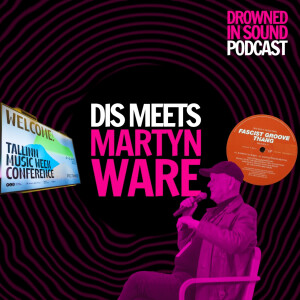
Saturday Apr 12, 2025
Saturday Apr 12, 2025
What did the future sound like when the synthesizer first arrived? What does it feel like now, with AI looming and immersive audio spaces on the rise?In this special episode of the Drowned in Sound Podcast, recorded at Tallinn Music Week, Sean Adams speaks with Martyn Ware — founder of The Human League and Heaven 17, producer for acts ranging from Tina Turner to Erasure, and creator of some of the UK’s most ambitious sound installations.This is a conversation about optimism and dystopia, about punk and purpose, and about how DIY culture in Sheffield shaped a career that’s still future-facing today.Martyn also reflects on his podcast Electronically Yours, the legacy of sound, and how creative freedom can reshape confidence, community, and cultural memory. Timestamps & Topics:01:32 – Synths, Sheffield, and starting out07:00 – Curiosity and creative confidence10:00 – From charts to immersive installations14:30 – Podcasting and preserving legacy20:00 – What would a Martyn Ware bar sound like?25:00 – Optimism, memory, and what comes next Further Listening & Resources:🎙️ Electronically Yours podcast🔊 Illustrious Company (immersive audio)🧠 Sounds of Our Shores installationStay Connected:🗣 Drowned in Sound Community📩 Email Sean → sean@drownedinsound.org🔵 Follow Sean on Bluesky📰 Subscribe to the DiS NewsletterAbout the Guest:Martyn Ware is a pioneering British musician, producer, and sound artist. As a founding member of The Human League and Heaven 17, and co-founder of British Electric Foundation, he helped define the sound of synth-pop while pushing boundaries in spatial audio, immersive installations, and political music-making. He also hosts the acclaimed podcast Electronically Yours.About the Host:Sean Adams turned his passion for music into Drowned in Sound, a UK-based music platform that launched in 2000. He also manages artists like Charlotte Church and The Anchoress, and works across strategic communications in the music and creative sectors.
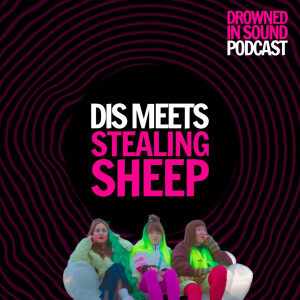
Sunday Mar 30, 2025
Sunday Mar 30, 2025
What's it like to be an artist right now? And what does the future of music look like? Will it be AI-generated slop or a joyful return to community and creativity? In this episode of the Drowned in Sound Podcast, Sean Adams speaks to Becky Hawley from the art-pop trio Stealing Sheep.From the launch of their new label G-IRL (Girl In Real Life) to their reflections on DIY culture, Liverpool’s music scene, and 15 years of creative evolution, this episode is full of inspiring insights about building something real in a digital world. Expect discussion of Daft Punk, community over algorithms, mechanical bulls, offline joy, and what it really means to be a band in 2025.📌 Key Timestamps:00:00 – Intro & New Album Campaign01:56 – What Will Music Be Like in 2050?04:54 – Joy, Fears, and Creative Challenges07:19 – The Sound of Stealing Sheep: Riding the Bull of Tech10:37 – G-IRL: Launching Their Own Record Label20:33 – Liverpool as Inspiration & Music City25:23 – Album Campaign Concepts & Offline Joy29:18 – Let’s Go! New Single & Album Themes30:59 – Artistic Identity, Collaborations & Creative Growth33:50 – Lessons Learned from 15 Years in Music38:05 – Building Community, Offline Spaces, & Human Connection42:57 – Supporting Grassroots Scenes49:01 – AI, Future Tech & Music’s Utopian Possibilities52:21 – Final Reflections: What Artists Need to UnlearnLinksNew Single “Let’s Go”Watch the Music VideoTatty Devine CollabGuerrilla GirlsJoin the Conversation:🗣 Drowned in Sound Community📩 Email Sean → sean@drownedinsound.org🔵 Follow on BlueskyAbout the Guest:Becky Hawley is one-third of Stealing Sheep, a Liverpool-based band known for their innovative, genre-defying sound. The trio recently launched their own record label, G-IRL (Girl In Real Life), to support their own work and that of other boundary-pushing creatives.About the Host:Sean Adams is the founder of Drowned in Sound, a pioneering music webzine launched in 2000. He also manages artists like Charlotte Church and The Anchoress, and works across campaigns that support independent and ethical approaches to music and media.
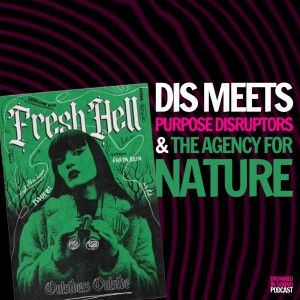
Sunday Mar 23, 2025
Sunday Mar 23, 2025
A conversation about Fresh Hell, subcultures in nature, and shifting the climate narrative through creativity.In this episode of the podcast that maps what music will be like in 2050 by meeting cultural changemakers and pioneers, Sean Adams explores how the Fresh Hell zine - a collaboration between creatives from the agency Iris and Purpose Disruptors (download it here) - reframes our relationship with nature through goth culture, beauty, and imagination. Featuring clips from Freya Beer’s special Gothic Disco radio broadcast recorded at Walthamstow Wetlands (listen to it on Mixcloud here), featuring reflections from Lira Valencia and Chris Packham, which inspired the zine, we explore what happens when goth culture meets the natural world.This conversation with Purpose Disruptors who run the Agency for Nature & the creators of Fresh Hell zine, examines how creativity can help us move from awe of the natural world to cultural transformation—and what musicians, media, and fans can do to help shift the climate crisis narrative.Aimee Brewerton – Comms & Engagement Manager at Purpose Disruptors, working across climate-focused storytelling, brand strategy, and cultural transformation.Nicole Vanner – Designer at Iris, co-creator of Fresh Hell, blending gothic subculture with natural aesthetics in visual communication.Andrew Hadley – Copywriter at Iris, co-author of Fresh Hell, exploring language that rewilds desire and reframes our connection to nature.Purpose Disruptors – A UK-based network of 5,000+ creative professionals transforming the advertising industry to align with climate goals and societal well-being.Iris – A global creative agency known for working with progressive brands and championing purpose-driven campaigns.Agency for Nature – A project platform by Purpose Disruptors that reimagines communications through a regenerative, nature-first lens — including campaigns like Fresh Hell. Episode Summary & Timestamps:00:00 Introduction: Can Music Change the Climate Conversation?00:31 Exploring the Goths in Nature Project01:23 Meeting the Change Makers04:20 Chris Packham's Punk and Nature Connection06:52 The Future of Our Planet in 205011:27 Purpose Disruptors: Changing the Advertising Narrative14:17 Creating the Goths in Nature Magazine25:09 The Role of Nature in Mental Health30:01 Spotting the Moor Hen30:52 Goth Music and Personal Favorites31:20 From Radio Show to Zine32:44 Chris Packham's Contribution35:04 Celebrating Nature and Subculture38:49 Nature as a Client40:00 Collaborative Efforts and Creative Freedom48:01 Impact and Mindset Shift58:39 Future Hopes and Accountability01:08:32 Final Thoughts and Call to ActionFeatured Links & Resources:Fresh Hell ZinePurpose DisruptorsFreya Beer’s Gothic DiscoLira Valencia (Instagram)Bird Nerdeem (Instagram)Freya Beer (Instagram)Agency for NatureWalthamstow WetlandsLawyers for NatureEarth PercentCreatives for ClimateGood Life 2030 short film Songs Mentioned:Something to Remember Me By – The HorrorsThis Corrosion – Sisters of MercySoundtrack to previous episodes by Sound Mirror now available on Bandcamp Join the Conversation:Drowned in Sound CommunityEmail: sean@drownedinsound.orgFollow on BlueskyUpgrade to support my work:Subscribe to the Drowned in Sound newsletter
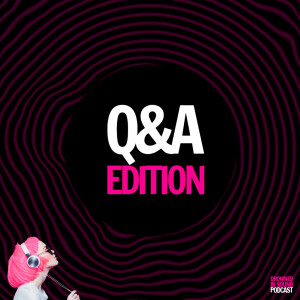
Thursday Mar 20, 2025
Thursday Mar 20, 2025
Drowned in Sound founder and DiS podcast host, Sean Adams answers your questions. Send Qs for future episodes to sean@drownedinsound.org.Links mentioned in this episodeArticle: Cafe Oto at Oscars - The GuardianArtist Recommendation: Nina VersypArtist Recommendation: TTSSFUArtist Recommendation: Maella Video: Apple on Dolby AtmosTicket App: DiceLink: Tim Burgess listening partyArticle: Bjork immersive album Bowers + Wilkins Drink: Icelandic drink Black DeathVenue Recommendation: Trades Club in Hebden BridgeMusic by Sound Mirror, available on Bandcamp here: https://sound-mirror.bandcamp.com/album/lake-wind-water-mountain Your Questions:Alex Lee Thompson: Are ”scenes” over? Unpack that question as you likeSimon Marshall: After the excellent live bands to look out for article, sponsored by Seetickets, I would be interested in your views on the ticket selling part of the music industry - as a music consumer the DICE app was and is a revelation, what is your experience, and what is the best place to buy to support artists and venues? Ear Protect Req: What three bands or artists should we be checking out live?Soundmirrorworld: Will the Atmos, immersive audio bubble burst? Or keep going ’til we’re full frontal?Alex Botten: What do you think about the hoards of zombie cover bands eating up local venues. Are they helping or hurting the scene? (I believe profoundly hurting)Eric Weiner: Would love to hear your thoughts on the listening party. Are they ever any good? What’s the perfect album release party?Grimes quote in full: Honestly the thing I like most about k pop is its an actual scene - reminds me Canadian punk scenes or the indie scene back in the day where like if your integrated enough there's like a constant feed of beauty with sort of known rituals, built in community, and like a collective excitement that is contagious and life affirming. I see how music scenes function effectively as a quasi religious institutions in a secular society. The extreme corporatization of music followed by Covid was very culturally harmful imo cuz a healthy modern music scene is actually a functional religious replacement - if one assumes the mind is better served by access to a healthy community that produces art, has events, shared morality and values, messiahs haha etc. Techno and emo rap similarly ensnared me over the last decade to an extent but they seem less "all ages"
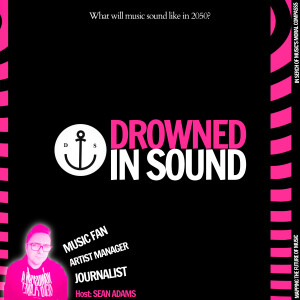
Sunday Mar 16, 2025
Sunday Mar 16, 2025
Why does gender bias still dominate radio airplay? And how did one data report force the industry to face its inequalities?In this episode of the Drowned in Sound Podcast, Sean Adams talks to Linda Coogan Byrne, activist and music consultant behind the Why Not Her? campaign. Her reports have exposed gender and racial disparities in radio airplay, driving real industry change. This conversation reveals how data is power or as Linda puts it, “the data validates lived experiences.”00:00 – Introduction: How One Report Changed Music01:45 – Meet Linda Coogan Byrne & Her Data Reports04:30 – The Shocking Gender Disparity in Radio07:00 – Industry Reactions: Denial, Excuses & Pushback11:00 – Thin Lizzy, Protest Billboards & Music Activism15:30 – Has the Industry Improved or Is It Lip Service?21:00 – Can Music Ever Be Equal?30:00 – Why Not Everyone Can Be an Activist38:00 – What Needs to Change for Lasting Equality?45:00 – How Data Holds Power to Account50:00 – Final Thoughts & Actionable TakeawaysLinksWhy Not Her? Reports → https://whynother.eu/data-reportsGender Bias in UK Radio – The Guardian → https://www.theguardian.com/music/2020/aug/21/female-british-artists-underrepresented-on-uk-radio-survey-finds Book More Women (Festival Representation) → https://www.instagram.com/bookmorewomen/Activist Recommendations:Mona Eltahawy → https://www.instagram.com/monaeltahawyEmma Dabiri - Don’t Touch My Hair → https://uk.bookshop.org/a/14603/9780141986289Mary Beard - Women & Power → https://uk.bookshop.org/a/14603/9781788160612Ijeoma Oluo - Mediocre → https://uk.bookshop.org/a/14603/9781529353839Check My Ads (Ad Funding & Misinformation) → https://checkmyads.org/🗣 Discuss this episode over on the Drowned in Sound Community → https://community.drownedinsound.com/📩 Email Sean → sean@drownedinsound.org🔵 Follow on Bluesky → https://bsky.app/profile/drownedinsound.bsky.social📩 Get the DiS Newsletter → https://drownedinsound.orgABOUT THE GUESTLinda Coogan Byrne is a music industry consultant, publicist, and activist known for her gender & racial disparity data reports. She is the CEO of Good Seed PR and founder of Why Not Her?, a campaign pushing for cultural change in music. Her work has influenced radio airplay, festival bookings, and policy decisions. She has been named among the Top 100 Most Influential Women in Ireland, inducted into the Music Week Hall of Honour, and recognized by IMPALA as a Top 20 Woman in Music Activism.ABOUT THE HOSTSean Adams is the founder of Drowned in Sound, a pioneering music webzine launched in 2000. Beyond editorial work, he manages artists like Charlotte Church and The Anchoress, operates the DiS independent record label, and contributes to strategic music industry and political advocacy projects. His passion lies in championing diverse music scenes and supporting artists worldwide.
